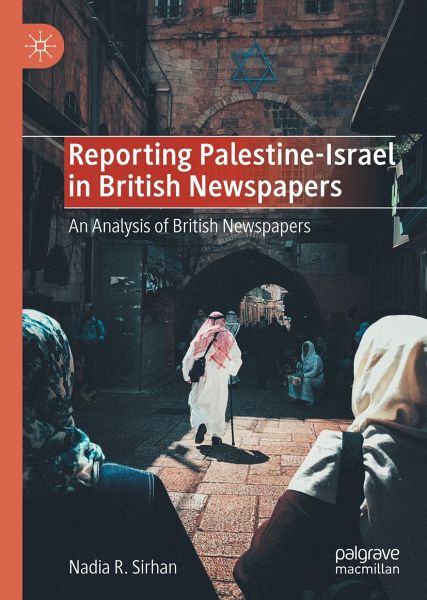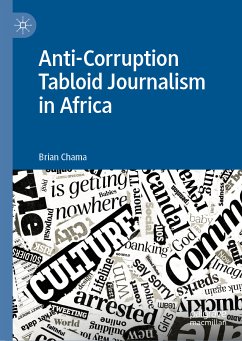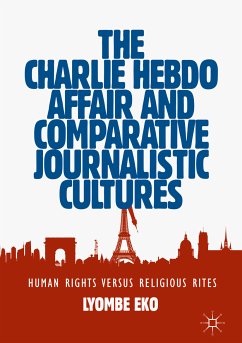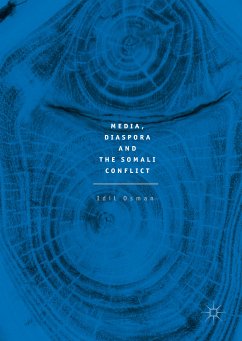
Reporting Palestine-Israel in British Newspapers (eBook, PDF)
An Analysis of British Newspapers
Versandkostenfrei!
Sofort per Download lieferbar
80,95 €
inkl. MwSt.
Weitere Ausgaben:

PAYBACK Punkte
40 °P sammeln!
This book examines the portrayal of the Palestinian-Israeli 'conflict' by looking at the language used in its reporting and how this can, in turn, influence public opinion. The book explores how language use helps frame an event to elicit a particular interpretation from the reader and how this can be manipulated to introduce bias. Sirhan begins the book by examining the history of the 'conflict', and the many persistent myths that surround it. She analyses how five events in the 'conflict' (two in which the Palestinians are victims, two in which the Israelis are victims, and Operation Cast Le...
This book examines the portrayal of the Palestinian-Israeli 'conflict' by looking at the language used in its reporting and how this can, in turn, influence public opinion. The book explores how language use helps frame an event to elicit a particular interpretation from the reader and how this can be manipulated to introduce bias. Sirhan begins the book by examining the history of the 'conflict', and the many persistent myths that surround it. She analyses how five events in the 'conflict' (two in which the Palestinians are victims, two in which the Israelis are victims, and Operation Cast Lead) are reported in five British newspapers: The Daily Mail, The Guardian, The Independent, The Daily Telegraph, and The Times. By looking at these events across a range of newspapers, the book investigates differences in the way that the media report each side, before exploring what factors motivate these differences - including issues of bias, censorship, lobbying, and propaganda.
Dieser Download kann aus rechtlichen Gründen nur mit Rechnungsadresse in A, B, BG, CY, CZ, D, DK, EW, E, FIN, F, GR, HR, H, IRL, I, LT, L, LR, M, NL, PL, P, R, S, SLO, SK ausgeliefert werden.












